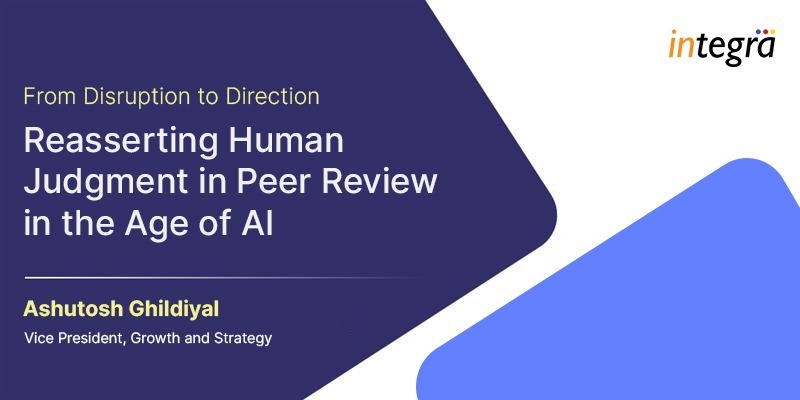
Online learning is not a new concept. The idea has been around for decades. The advent of online courses was experimented with as early as 1998 by universities such as MIT, Stanford University, Carnegie Mellon University, and the University of Oxford. While these experiments were initially popular among students in their 20s, they didn’t find widespread adoption for many reasons. Online education was largely ignored in the early 2000s, with educators and policy-makers being slow to adopt technology that could amplify learning outcomes.
The education delivery model had remained unchanged for close to a century and was not open to disruptive innovation. Education was traditionally delivered in an enclosed system due to its physical-only nature. The personal computer and internet changed many industries. Education was one domain that had not utilized the advancement in the technology landscape to its benefit for a very long time. Educators were too slow to adopt technology in education delivery.
Flipped classroom and Massive Open Online Courses (MOOCs)
One of the early innovations in education delivery happened in the form of the “flipped classroom” concept. Alison King, then associate professor of education in the College of Education at California State University, first seeded this concept in her 1993 publication, “From Sage on the Stage to Guide on the Side.” Eric Mazur, a physicist and educator at Harvard University, gave structure to the practice in his 1997 publication titled “Peer Instruction: A User’s Manual.”
In the flipped classroom, teachers would prepare lectures to be played in a scheduled time (usually at home) and provide students with more hands-on learning activities during class. The innovation was revolutionary because it provided learners with greater mobility without compromising the quality of teaching. Learning media like audio and video found widespread adoption.
Flipped classrooms likely lead to the next innovation in education delivery: massive open online courses (MOOCs). MOOCs are a modern manifestation of distance learning. Students can enroll via video lectures without instructor interaction or personal instruction, leaning instead on social networks for advice and feedback.
More importantly, this model does not require learners to be present, which is an invaluable innovation that has been historically inaccessible due to cost constraints. Suddenly education became more affordable and accessible to a broader group of people than ever before who could never afford such an opportunity just 20 years ago! The future looks promising.
Education Technology
The advancement in technology and handheld devices was central to quite a disruption across industries. The education domain suddenly was buzzing with several online tools and mobile apps that were available to support early learners. In many cases, these tools were specifically designed in response to the needs identified by educators who work closely with teachers, students, and parents alike. Education Technology suddenly became a high-growth domain. Here are just some examples:
- Khan Academy is an online learning platform that offers practice exercises, instructional videos, and lessons for math, science, economics, history, art history, or computer programming for kids ages six years old up through high school juniors.
- ABC Mouse develops educational games which are available on Apple’s iTunes App Store so children can learn about reading phonics skills, letter sounds, vocabulary story, etc.
- Duolingo offers free language learning whether it is Spanish, French or German, and is the most downloaded language learning app
- Codeacademy teaches individuals to code through interactive programming lessons.
The future of education: 2021 and beyond
The pandemic brought a global standstill. Millions of students worldwide suddenly found themselves stranded. The world witnessed a problem never seen before. The Education Technology landscape, which was struggling to find a foot less than a decade ago became the lifeline for the education domain.
A new era in the education domain has begun which is slowly but surely changing how we think about learning and transforming every aspect of our lives to make way for a better future ahead. Online education delivery is the next frontier for education. This model provides greater access to students worldwide and offers a wider variety of subjects that would not be available otherwise. The best of what we have come to experience through flipped classrooms to MOOCs will provide a future full of innovative possibilities.
Technologies like augmented reality, mixed reality and virtual reality have great potential to create an entirely new way of learning experience.
Innovation is necessary for survival
The future of education holds much potential to transform the way we learn. Many students now see online education as a viable alternative for obtaining an affordable, high-quality degree from elite universities like Stanford University, Harvard University, and many around the globe. With the industries more open to recruiting capable candidates who have taken to skill themselves through alternate education models, there’s more to look forward to in the future. If anything, the current circumstances have taught us that innovation is necessary for humankind’s survival.
The teaching-learning process has come a long way, and so must our understanding and awareness of the latest trends in online delivery methods. The possibilities for what we can expect from this new frontier are endless.
Integra offers content development, online learning solutions, assessments development and learning modernization solutions to Higher Education Publishers, Edtech organizations, and, Colleges and Universities. Our team of experts can help you design impactful courseware tailored to meet specific learning needs. Contact us today to learn more about how we can support you with this transformation!
Recent Blogs

Why LaTeX Still Matters in Scholarly Publishing—and How the Right Partner Makes All the Difference

Print, Pedagogy, and AI: The New Architecture of Educational Publishing



